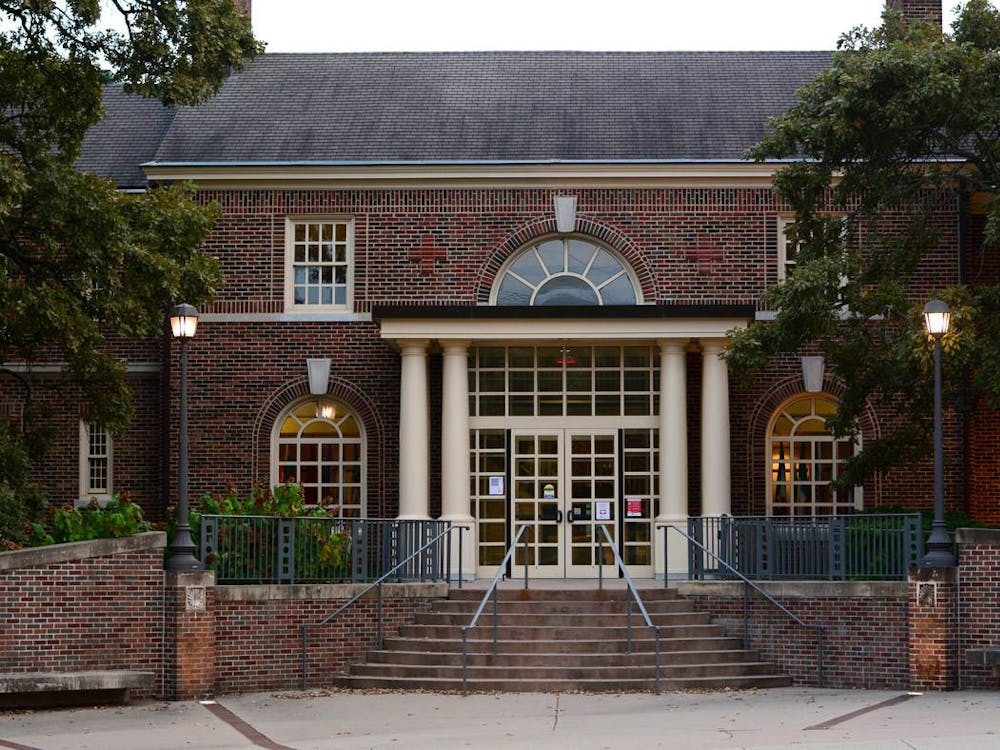By Emily Tate, Managing Editor
Jack Yungblut turned 20 years old last week. But if he had been a little less drunk that Tuesday night in late August, if he had looped his belt just a little tighter around his neck, Jack might not have made it to his birthday.
On that night during Welcome Week at Miami, Jack tried to hang himself from a bridge in the Formal Gardens, not far from his dorm.
Many college students in recent years have not been so lucky. Suicide has become a leading cause of death on U.S. campuses, and an estimated 7 percent of college students have considered trying to take their own lives in the last year, according to the National Alliance on Mental Illness (NAMI).
NAMI also found that one in four adults between the ages of 18 and 24 have a diagnosable mental illness, and 73 percent of those affected have experienced a mental health crisis while at college.
For Jack Yungblut, emotional difficulties began early. He remembers feeling something was wrong as early as third grade.
When Jack was 7, his uncle committed suicide. His mother, Emily Yungblut, said she and her husband tried to be open and honest about it with their children - Jack and his three younger sisters - and explained it to them as they got older.
"In our family, there's never been anything to be ashamed of or embarrassed of," Emily Yungblut said.
It was during his time at Turpin High School in Cincinnati that Jack told his parents of his own depression.
His symptoms became more serious in high school, but there were plenty of distractions, like playing lacrosse, to keep his mind off it.
Then they escalated when he entered Miami in the fall of 2014.
At first he took Zoloft, an antidepressant, but he soon gave that up. He hated the way it made him feel - numb, fuzzy, shaky and unaware.
Enjoy what you're reading?
Signup for our newsletter
"Instead of having really high highs and really low lows, [I was] just kind of flat-lined," Jack said.
When he stopped taking the antidepressant, his bad days began to outnumber the good ones.
"It wouldn't even have to be something big or traumatizing to set me off," he said. "Some little thing would bring me down for, like, two weeks."
And instead of lacrosse, Jack got involved with other things, like drinking and partying.
"At school, the distractions were a little more self-destructive," he said.
During winter break last year, Jack was in a bad place. He picked out the day he was going to commit suicide. But when that day came, he couldn't bring himself to do it.
He had set a date like that several times, but in the end, he always changed his mind at the last minute. He thought of his sisters - ages 12, 15 and 16.
"What if my sisters were the ones to find me?"
He didn't want them to see him like that.
When Jack returned to Miami for the spring semester, he pledged Sigma Nu fraternity. This, he said, turned things around for a while. He wasn't thinking about his depression. He was too busy meeting people. For the first time all year, he was happy.
But in early April, Sigma Nu went under investigation, and everything - the parties, the socializing - came to a halt. All of the things that had filled his schedule, distracting him from his dark thoughts, suddenly disappeared.
"I felt like something I had put a lot of work into was just … done."
That last month of school was an extreme low. During the investigation, Jack felt as if the university was stringing Sigma Nu along, telling them something one day and another thing the next. He attended one or two classes a week, at most. And he was sleeping 15 or 16 hours a day - a key symptom of depression.
In the fall semester, he earned around a 3.3 GPA. Even that, he said, was unusually low for him, as he'd always done very well in school. By the end of freshman year, his GPA had dropped to a 1.7.
Jack knew he was struggling at the end of the school year, and he recognized that the downward spiral would only continue if nothing changed. Still, in August, he decided to return for sophomore year.
That's how Jack found himself in the Formal Gardens that Tuesday night.
It was the first week of classes at Miami. He went to a party off campus, then to Side Bar - nothing out of the ordinary. But at the bar, Jack started to panic. Something snapped, and he left in a hurry, without telling any of his friends.
Back in his dorm room at the Miami Inn, Jack just sat there, thinking. Then he left his room, crossed the street, passed the gazebo and stopped at one of the bridges.
There, Jack made a decision. He knew his sisters wouldn't find him this way.
He used his leather belt. He tied it to a post on the bridge.
But it didn't work. He was too hasty with the loop. He was still drunk.
Jack's head slipped through the belt and he fell to the ground. He sat there in shock. He'd scraped his neck on the bridge, but was otherwise unscathed.
"I was sitting there like, 'Holy shit, what did I just do?'"
When he got back to his room, he still couldn't believe it. "What did I almost do?"
The next morning, Jack knew he needed immediate help, so he went to Miami's Student Counseling Services.
"I told them, 'I really need to see somebody - like ASAP,'" he said.
But Jack says the person he spoke to told him he couldn't get an appointment until the following week. He didn't explain what had happened the night before - that he had tried to commit suicide - but he said he made it clear his need was urgent.
Kip Alishio, director of Student Counseling Services, said the center's procedures would not have allowed this to happen. And Alishio said there was no wait list in August, when Jack came in.
"I can't imagine a scenario where this would happen," Alishio said.
If a student indicates his or her need is urgent, Alishio said, that student will always be scheduled for an appointment the same day.
At some point in the exchange, one side misunderstood the other, and Jack walked out of Counseling Services looking for another option. Ultimately, he decided to take a leave of absence from Miami and seek professional help.
He called his parents and told them he wanted to drop out, then stayed through the weekend to explain the situation to his friends.
Jack left school that Sunday, five days after his attempt. On Monday, he admitted himself to the Lindner Center of Hope in Mason, Ohio, which specializes in mood, anxiety and psychiatric disorders.
"It's a mental hospital, but they make it feel not like a mental hospital," he said.
Emily Yungblut said her family's experience with Lindner exceeded their expectations. Just hours after they called the center, Jack was admitted for in-patient care.
"They didn't mess around," she said.
Jack stayed at Lindner for five days, from Monday to Saturday. He was diagnosed with bipolar II disorder. It was a relief, Jack said, if only it provided an explanation for his extreme ups and downs.
"It's not like the typical [bipolar], where you're freaking out and go way down," Jack said. "I'd get some idea in my head that's completely unreasonable - like I'd decide I'm going to solve world hunger, then for three days I wouldn't sleep very much and I'd do a bunch of research, like 'Oh, I'm going to do this.' Then eventually I'd just crash for, like, a week."
Since his treatment at Lindner, Jack has been on Prozac, another antidepressant, and Abilify, a prescription used to treat bipolar disorder. He says the medications help a lot.
"It keeps me stable."
For now, he is taking his diagnosis one day at a time. He encourages others dealing with mental illness to speak up and get help.
"I'm lucky to be here," he said. "But I don't want other people to have to rely on luck. I should've gotten help a long time ago, and I didn't … so my life, for the foreseeable future, is harder because of it."
But Jack is lucky for other reasons, too. His family, friends and fraternity brothers are all aware of his situation, and they're ready to support him along the way.
"I want to fix it for him, but I can't," his mom said. "Unfortunately, it's something he's going to deal with the rest of his life. But I'm very hopeful he has a good handle on this."
Mental health resources available:
Student Counseling Services, Oxford
(513) 529-4634
Lindner Center of Hope, Cincinnati
(888) 536-4673
Netcare Corporation, Columbus
(614) 276-2273
National Suicide Prevention Lifeline, United States
1(800) 273-8255




